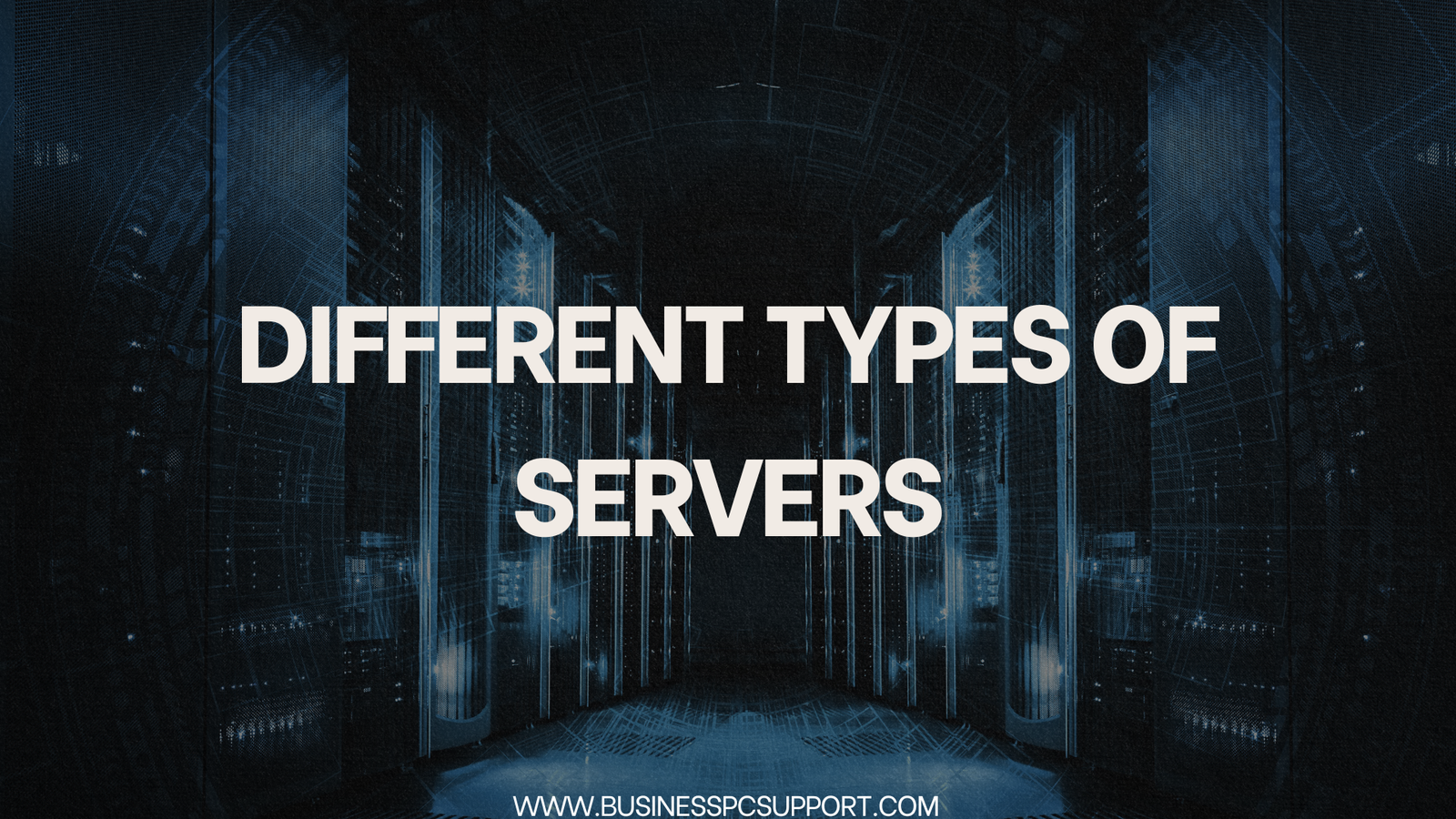Exploring the Different Types of Servers
In today’s digital world, servers form the backbone of technology, powering everything from websites to applications and corporate networks. Understanding the types of servers and their functions can help businesses make informed decisions about their IT infrastructure. Let’s dive into the most common types of servers categorized by their functionality, architecture, and deployment environment.
Table of contents
Types of Servers Based on Functionality
1. Web Server
Web servers host websites and deliver web pages to users over HTTP or HTTPS protocols. They handle requests from browsers and ensure content is served quickly and efficiently. Popular web servers include:
- Apache
- Nginx
- Microsoft IIS
SEO Tip: Use a reliable web server to improve your website’s loading speed and user experience, which can boost your search engine rankings.
2. File Server
File servers store and manage files in a centralized location, making them accessible to users across a network. They are ideal for businesses that need shared access to files and collaborative workflows.
SEO Tip: Secure and optimized file storage improves operational efficiency, indirectly benefiting your business’s online presence.
3. Database Server
Database servers manage databases and provide secure access to stored data. They are crucial for businesses relying on structured information storage. Examples include:
- MySQL
- PostgreSQL
- Microsoft SQL Server
SEO Tip: Optimize database queries to enhance your website’s speed and performance, a key factor in SEO.
4. Application Server
Application servers host and run software applications, often acting as middleware between databases and user interfaces. Examples:
- Apache Tomcat
- JBoss
- WebLogic
SEO Tip: Ensure seamless integration between your application and database for better user experiences and lower bounce rates.
5. Mail Server
Mail servers manage the sending, receiving, and storage of emails. They are essential for businesses that rely on email communication. Popular options include:
- Microsoft Exchange Server
- Postfix
- Sendmail
SEO Tip: Use a professional mail server to build trust with your audience through branded email addresses.
6. DNS Server
DNS servers translate domain names into IP addresses, making it possible to access websites using easy-to-remember URLs instead of numerical addresses. Examples:
- BIND
- Microsoft DNS
SEO Tip: Use a reliable DNS server to minimize downtime and ensure your website remains accessible, improving SEO.
7. Proxy Server
Proxy servers act as intermediaries between clients and other servers. They provide additional security, caching, and access control, improving network performance and privacy.
SEO Tip: Implement a proxy server to enhance website security and maintain consistent uptime, both of which positively affect your SEO.
8. Virtual Server
Virtual servers are software-based servers that operate within physical servers using virtualization technology. They offer flexibility and scalability for various tasks.
SEO Tip: Use virtual servers to scale your operations quickly, ensuring your website can handle traffic spikes without performance issues.
9. Game Server
Game servers host multiplayer online games, managing game states, player interactions, and connections to ensure smooth gameplay.
10. Print Server
Print servers manage printers on a network, allowing users to send print jobs to specific printers efficiently.
Types of Servers Based on Architecture
1. Dedicated Server
A dedicated server is a physical machine entirely dedicated to a single task or user. It offers high performance and reliability, ideal for resource-intensive applications.
SEO Tip: Host your website on a dedicated server for maximum performance and faster load times, critical for SEO success.
2. Virtual Private Server (VPS)
A VPS is a virtualized server that shares physical resources with other VPS instances but operates independently. It’s a cost-effective solution for smaller-scale needs.
SEO Tip: Choose a VPS for a balance of performance and affordability, ensuring optimal site performance.
3. Cloud Server
Cloud servers are virtual servers hosted on cloud platforms, providing scalability, flexibility, and reliability. Popular platforms include:
- AWS EC2
- Google Cloud
- Microsoft Azure
SEO Tip: Use cloud servers for their scalability, ensuring your website remains operational during high-traffic periods.
4. Blade Server
Blade servers are compact servers housed in a chassis, sharing power and cooling resources. They are space-efficient and commonly used in data centers.
5. Rack Server
Rack servers are designed to be mounted in a rack structure, maximizing space efficiency and making them ideal for data centers.
6. Tower Server
Tower servers resemble desktop PCs and are used for smaller operations. They are cost-effective and easy to maintain.
Types of Servers Based on Deployment Environment
1. On-Premises Server
On-premises servers are located within an organization’s physical premises, offering full control but requiring maintenance and infrastructure investment.
SEO Tip: Use on-premises servers for sensitive data, ensuring compliance and better control over data security.
2. Colocation Server
Colocation servers are housed in third-party data centers, offering better bandwidth, cooling, and security while reducing infrastructure costs.
3. Edge Server
Edge servers are located closer to end users, reducing latency and providing faster services for applications requiring real-time processing.
SEO Tip: Deploy edge servers to enhance performance for local searches and mobile users, which can improve your SEO.
4. Hybrid Server
Hybrid servers combine on-premises and cloud features, offering flexibility and scalability for diverse workloads.
5. Managed Server
Managed servers are maintained by a hosting provider, including tasks such as updates, backups, and monitoring, allowing businesses to focus on core activities.
SEO Tip: Use managed servers to ensure consistent performance and uptime, indirectly supporting your SEO efforts.
Conclusion
From powering websites to enabling multiplayer games, servers are integral to modern technology. Choosing the right type of server depends on your specific needs, whether you prioritize performance, scalability, or cost-efficiency. By understanding these server types, businesses can build an IT infrastructure that supports their growth and operations seamlessly.
Need help choosing or setting up the perfect server for your business?




Comments are closed